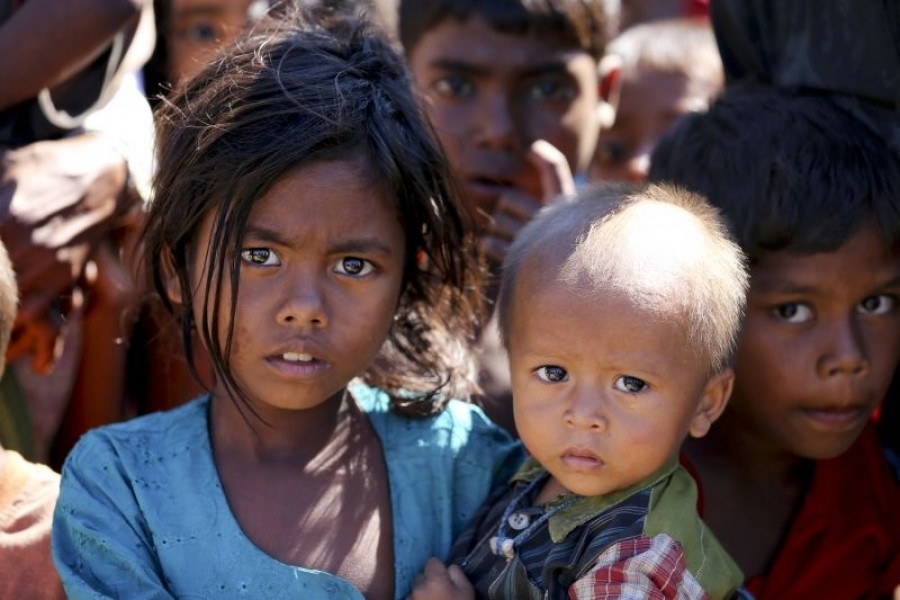108,037 Rohingya children have been born in Bangladesh and Myanmar in recent years, a new analysis by Save the Children has found.
These children are living in unsuitable conditions, with limited access to education and healthcare, no freedom of movement and almost entirely dependent on aid, it added.
Save the Children analysed population data from the refugee camps in Bangladesh, starting in August 2017 and in the displacement camps in Myanmar’s Rakhine State, since 2012, to mark three years since more than 700,000 Rohingya fled Myanmar in the wake of brutal violence which the UN has described as a “textbook example of ethnic cleansing”.
Using data from the UN refugee agency in Cox’s Bazar up until May 31, the children’s aid agency found there are currently an estimated 75,971 children under three years of age in the refugee camps in Cox’s Bazar – or 9.0 per cent of the total refugee population.
More than 1.0 million Rohingya refugees are living in Bangladesh, and nearly half of them are children.
Displacement camps in Rakhine State have been housing Rohingya Muslims as well as Kaman Muslims since 2012 following previous waves of ethnic violence.
Using UNHCR data from Myanmar up to December 2019, Save the Children estimates there are 32,066 children under seven years of age spread across 21 camps, representing over 25 per cent of the displaced population.
Onno Van Manen, Bangladesh country director for Save the Children, said:“The birth of a child is a joyous occasion, but these children have drawn the short straw – born into a life where their families can’t work, where they have limited access to education and healthcare, and no freedom of movement.
“We teach our children to dream big, but for a child who knows nothing but a refugee camp, many of their hopes and dreams will seem out of reach. The people and government of Bangladesh welcomed the refugees when they fled violence in their home country, but three years on we are no closer to a sustainable solution to this refugee crisis.
“Rohingya children and families must be able to return to their homes in Myanmar voluntarily and in a safe and dignified manner. World leaders – particularly those with close ties to Myanmar – must do everything they can to encourage a swift resolution to this crisis. We can’t allow the years to pile up and for children to spend their entire childhoods in confinement.”


